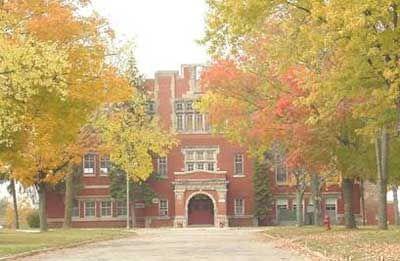Advocates Demand Illinois Release Youth From Juvenile Detention Centers Amid Coronavirus Outbreak

Advocates and correctional officials are calling on Illinois and other states across the country to release youth from juvenile detention facilities amid the COVID-19 pandemic.
There are currently about 200 youth incarcerated in Illinois’ juvenile detention facilities. A recent report from the Children and Family Justice Center at Northwestern University found that more than 90% of incarcerated youth have at least one mental health disorder diagnosis, and about two-thirds have multiple diagnoses.
Julie Biehl, director of the Children and Family Justice Center, said underlying mental health issues make social distancing and isolation especially difficult for the majority of youth incarcerated in Illinois Department of Juvenile Justice facilities.
“At these scary times, where everyone in our country is anxious… being a young person locked up in a cell, isolated from your family, and not having, you know, the programming or the schooling or the support that you can normally have, it's just got to be difficult for everyone," she said.
Biehl said isolation can exacerbate existing mental health issues.
A group of lawyers, advocacy organizations and others have signed a letter calling on Gov. J.B. Pritkzer to release as many youth as possible from IDJJ facilities. In addition to mental health concerns, advocates also raises concerns about the physical health threat the virus poses to incarcerated youth. The letter states that IDJJ cannot maintain the same standards as community healthcare facilities.
Pritzker stated during a press conference last week that he was looking into the possibility of releasing young people from juvenile detention facilities so long as it can be done safely.
IDJJ has halted visits to all five of its juvenile detention facilities through April 3. The agency is also taking other measures to prevent coronavirus from entering its buildings, including taking the temperature of everyone who comes into an IDJJ facility.
Biehl said the average length of stay in IDJJ facilities is about six months. She said as soon as a young person enters an IDJJ facility, staff begin to plan how and when that child will return home.
“That's what they've been doing all along. That's how they operate. And so that system is already in place for them... to look at the possibility of your kids being allowed to return home,” Biehl said.
Criminal justice advocates have also called upon the state to release elderly and chronically ill inmates from adult correctional facilities. During a press conference last week, Pritzker said releasing adults from prisons is a more complex calculation.
Follow Lee Gaines on Twitter: @LeeVGaines
Links
- University Of Illinois Raises Student Health Insurance Premiums Amid COVID-19 Pandemic
- Preparing For COVID-19: The Difference Paid Sick Leave Can Make
- How COVID-19 Is Affecting Local Public Health Departments
- Have A TV At Home? Then You’re A Click Away From Keeping Your Children Schooled During The Covid-19 Pandemic
- Lack Of Access, Long Waitlists: Education In Illinois Prisons
- Champaign Group Provides Home To Former Prisoners, But Need For Housing Remains

